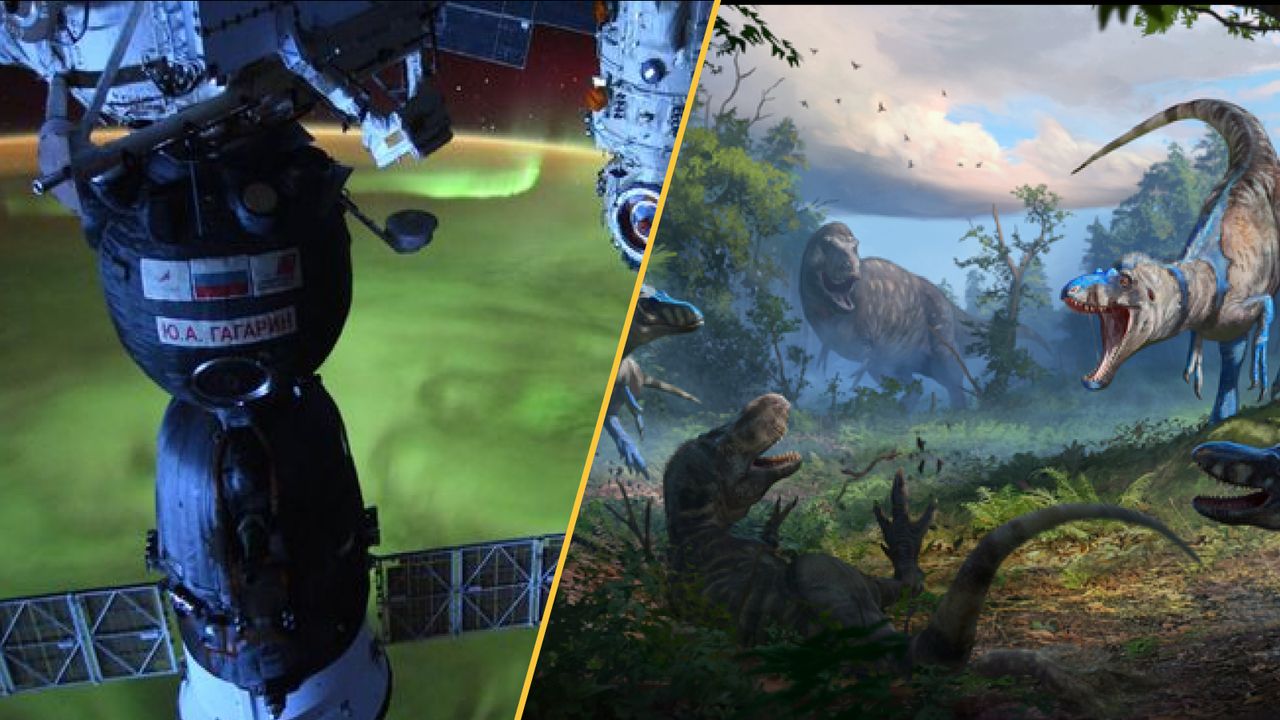Science
New Discoveries Illuminate Solar Mysteries and Dinosaur Evolution

Recent scientific revelations have captivated the global community, unveiling significant discoveries about our sun, ancient dinosaurs, and even the interaction between humans and artificial intelligence. This week’s findings shed light on solar phenomena, a new perspective on dinosaurs, and unexpected insights into chatbot functionality.
Solar Studies Uncover Cosmic Mysteries
A groundbreaking study has clarified why the sun’s outer surface, or corona, is significantly hotter than its core. Researchers have identified that magnetic waves, theorized since the 1940s but only recently confirmed, transport energy from the sun’s interior to the corona. These magnetic fields can twist and break, leading to massive solar flares that unleash torrents of charged particles capable of triggering severe geomagnetic storms on Earth.
Another study highlights the potential dangers of these solar superstorms. According to NASA, the next extreme storm could disrupt all satellites orbiting the planet, posing a risk to global communication and navigation systems. This alarming prediction emphasizes the need for continued research into solar activity.
Meanwhile, the interstellar comet 3I/ATLAS has reached its closest point to the sun, a phenomenon known as perihelion. As it approaches, the comet has begun emitting gas at an unprecedented rate, resulting in a remarkable brightness that has been captured by NASA spacecraft. The James Webb Space Telescope has provided further insights into the comet’s composition, revealing that its billions of years in space have altered its chemical structure due to exposure to cosmic radiation.
New Insights into Dinosaur Evolution
In a significant revelation for paleontology, the discovery of two fossils known as the “Dueling Dinosaurs” has sparked a reconsideration of the classification of Nanotyrannus. Previously thought to be a juvenile Tyrannosaurus rex, new analyses suggest that Nanotyrannus lancensis represents a distinct species. This finding resolves a long-standing debate among scientists about the true nature of this small tyrannosaur.
The fossils, unearthed in 2006, depict a fierce encounter between a Triceratops and a tyrannosaur, providing a rare glimpse into the behaviors of these ancient creatures. This revelation has led to a broader acceptance in the scientific community that Nanotyrannus is not merely a young T. rex but a fully grown adult of its own species. Additionally, researchers have identified another species within the same genus, Nanotyrannus lethaeus, adding further complexity to the evolutionary narrative.
As the debate continues, paleontologists are left pondering whether the discussion surrounding these species has finally been settled or if new questions are bound to arise.
Another interesting angle this week came from research suggesting that being rude to chatbots could improve their accuracy. A study indicates that chatbots like ChatGPT tend to provide more accurate responses when users employ less polite language. Despite this finding, researchers caution against adopting such behavior, noting potential negative effects on interpersonal interactions. The study raises intriguing questions about human-machine dynamics and the future of AI interactions.
As the week wraps up, scientific exploration continues to uncover the mysteries of our universe and our past. From solar phenomena to dinosaur evolution and the quirks of AI, these discoveries remind us of the complexities of life and the importance of ongoing research.
-

 Business2 weeks ago
Business2 weeks agoIconic Sand Dollar Social Club Listed for $3 Million in Folly Beach
-

 Politics2 weeks ago
Politics2 weeks agoAfghan Refugee Detained by ICE After Asylum Hearing in New York
-

 Health2 weeks ago
Health2 weeks agoPeptilogics Secures $78 Million to Combat Prosthetic Joint Infections
-

 Science2 weeks ago
Science2 weeks agoResearchers Achieve Fastest Genome Sequencing in Under Four Hours
-

 Health2 weeks ago
Health2 weeks agoResearcher Uncovers Zika Virus Pathway to Placenta Using Nanotubes
-

 Science2 weeks ago
Science2 weeks agoInterstellar Object 3I/ATLAS Emits Unique Metal Alloy, Says Scientist
-

 Lifestyle2 weeks ago
Lifestyle2 weeks agoJump for Good: San Clemente Pier Fundraiser Allows Legal Leaps
-

 Top Stories2 weeks ago
Top Stories2 weeks agoChicago Symphony Orchestra Dazzles with Berlioz Under Mäkelä
-

 World2 weeks ago
World2 weeks agoUS Passport Ranks Drop Out of Top 10 for First Time Ever
-

 Business2 weeks ago
Business2 weeks agoSan Jose High-Rise Faces Foreclosure Over $182.5 Million Loan
-

 World2 weeks ago
World2 weeks agoRegional Pilots’ Salaries Surge to Six Figures in 2025
-

 Science2 weeks ago
Science2 weeks agoMars Observed: Detailed Imaging Reveals Dust Avalanche Dynamics









